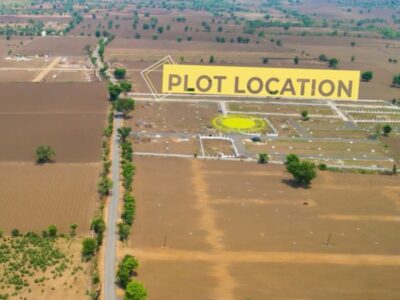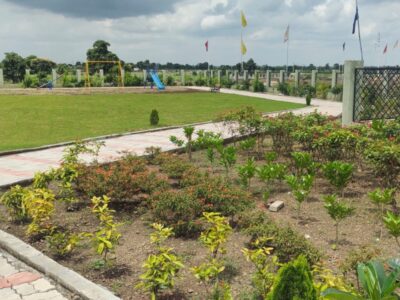
Real estate project formation process?
Real estate development is a complex journey that requires careful planning, strategic execution, and an understanding of various market dynamics. The real estate project formation process encompasses multiple stages, from initial concept and feasibility studies to construction and marketing. For those looking to navigate this intricate landscape, understanding each phase is crucial. Additionally, platforms like “Direct Dealwala offer best property options in Nagpur” can play a vital role in streamlining the project formation process and providing valuable insights into market trends.
What Is Real Estate Project Formation?
Real estate project formation refers to the organized sequence of steps taken to bring a real estate project from an initial idea to fruition. This can involve residential, commercial, or mixed-use developments. The process includes several key components, such as market research, financial planning, site acquisition, design, construction, and eventual marketing and sales.
Importance of the Project Formation Process
The real estate project formation process is crucial for several reasons:
- Risk Mitigation: By understanding each phase, developers can identify and address potential risks early on.
- Resource Allocation: A structured approach allows for better management of time, money, and human resources.
- Regulatory Compliance: Navigating local regulations and obtaining necessary permits is vital to avoid legal issues.
- Market Alignment: Thorough market research ensures that the project aligns with current demand, enhancing its viability.
- Investment Returns: A well-executed project formation process increases the likelihood of achieving favorable returns.
Stages of Real Estate Project Formation
1. Concept Development
Identifying Market Needs
The initial stage involves identifying market needs through comprehensive research. This includes understanding demographic trends, consumer preferences, and economic factors that influence housing demand. For example, in Nagpur, a rising population may create a demand for affordable housing options priced under 60 lacs.
Defining the Project Scope
Once market needs are understood, the next step is to define the project scope. This encompasses the type of development (residential, commercial, or mixed-use), target audience, and key features or amenities that will set the project apart.
Conducting a Feasibility Study
A feasibility study is an essential part of the concept development phase. This study assesses:
- Financial Feasibility: Evaluating costs, potential revenues, and profitability.
- Technical Feasibility: Understanding the practical aspects of construction and design.
- Legal Feasibility: Identifying zoning laws, land use regulations, and other legal considerations.
2. Project Planning
Creating a Business Plan
A well-structured business plan serves as the foundation for the project. It outlines objectives, target markets, marketing strategies, and financial projections. A solid business plan helps attract investors and secure funding.
Securing Financing
After creating the business plan, the next step is to secure financing. This can involve traditional bank loans, private investors, or public financing. It’s essential to have a robust financial model that includes all potential costs and anticipated revenues.
3. Site Acquisition
Identifying Suitable Locations
Selecting the right location is critical for any real estate project. Factors to consider include access to transportation, proximity to amenities, and overall neighborhood desirability. Utilizing resources like “Direct Dealwala offer best property options in Nagpur” can help identify suitable sites that meet your project criteria.
Conducting Due Diligence
Before acquiring a site, due diligence is essential. This includes:
- Title Search: Ensuring clear ownership and checking for any liens.
- Environmental Assessments: Evaluating environmental conditions that may impact the project.
- Zoning Verification: Confirming that the land is zoned for the intended use.
4. Design and Development
Engaging Architects and Engineers
Once the site is secured, engaging experienced architects and engineers is necessary. They will create detailed design plans that align with the project’s goals and comply with local regulations.
Obtaining Necessary Permits
Securing the necessary permits and approvals is a critical step in the development process. This may involve public hearings, environmental assessments, and various regulatory approvals. Starting this process early can help avoid delays.
Finalizing Designs
With permits in hand, the design plans can be finalized. This includes selecting materials, colors, and finishes that align with the overall vision for the project.
5. Construction Phase
Selecting Contractors
Choosing reliable contractors is essential for successful project execution. Conducting interviews and checking references can help ensure that the selected contractors have a solid reputation and experience in similar projects.
Project Management
Effective project management during construction is vital. This includes monitoring timelines, budgets, and quality standards. Regular site inspections and meetings with contractors can help ensure the project stays on track.
6. Marketing and Sales
Developing a Marketing Strategy
Creating a marketing strategy to promote the project is crucial. This involves identifying target markets and using various marketing channels, such as social media, traditional advertising, and real estate platforms.
Implementing a Sales Strategy
An effective sales strategy is essential for converting leads into buyers. This may involve hosting open houses, conducting virtual tours, and targeted outreach to potential buyers.
7. Completion and Handover
Final Inspections
Once construction is complete, conducting final inspections ensures that the project meets quality and safety standards. Addressing any last-minute issues is critical before moving forward.
Handover Process
The handover process involves transferring ownership to buyers or tenants. Providing necessary documentation, warranties, and information about the property is essential for a smooth transition.
8. Post-Completion Management
Property Management
For projects that include rental properties, establishing a property management plan is essential. This includes maintenance, tenant relations, and rent collection strategies.
Ongoing Marketing
Continuing marketing efforts can help attract additional tenants or buyers, especially in competitive markets.
Key Considerations in Real Estate Project Formation
1. Understanding Local Market Dynamics
Understanding the unique characteristics of the local market is essential. In Nagpur, for instance, knowing the preferences of buyers seeking affordable housing can guide project decisions. Leveraging platforms like “Direct Dealwala offer best property options in Nagpur” can provide valuable insights into current market trends and demand.
2. Navigating Regulatory Frameworks
Real estate projects must adhere to various regulations. Familiarity with local laws, zoning requirements, and environmental regulations is essential for a successful project.
3. Financial Planning and Risk Management
A thorough financial plan is vital for mitigating risks. This includes creating a detailed budget, establishing contingency plans, and conducting regular financial reviews throughout the project lifecycle.
4. Emphasizing Quality and Sustainability
Quality construction and sustainable practices are increasingly important. Using eco-friendly materials and energy-efficient designs can enhance a project’s marketability and appeal to environmentally conscious buyers.
Conclusion
The real estate project formation process is an intricate journey that requires careful planning and execution. By understanding each stage—from concept development to post-completion management—developers and investors can navigate the complexities of the market more effectively. Utilizing platforms like “Direct Dealwala offer best property options in Nagpur” can simplify the property search process and provide essential insights for making informed decisions.
As the real estate landscape continues to evolve, staying updated on market trends and best practices is essential for success. Embracing a structured approach and leveraging the right resources can transform your real estate aspirations into reality, contributing to the dynamic urban development of Nagpur and beyond. Whether you aim to create affordable housing, commercial spaces, or mixed-use developments, a comprehensive understanding of the project formation process will serve as the foundation for achieving your goals.



Comments